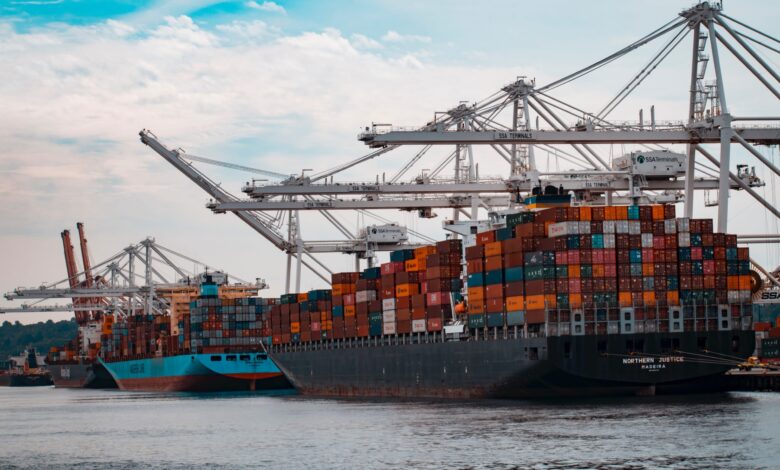Adapting To Supply Chain Disruptions Resilience Strategies For Shipping Companies

Among the uncertainties of contemporary commerce, the robustness of supply chains has become a crucial asset for shipping businesses operating in the ever-changing global trade market. Shipping businesses should strengthen operations against unanticipated obstacles to adapt to supply chain interruptions. This needs a strategic shift in strategy.
The capacity to navigate through and quickly recover from disruptions, whether they arise from natural catastrophes, geopolitical conflicts, or extraordinary global events, has become a crucial component of success. Shipping businesses carefully develop resilience plans that combine proactive measures and flexible reactions to prosper in this unstable climate.
Evaluate Risks And Create Scenarios
Risk assessment and scenario creation are vital components of asset management in dubai toolkit for managing supply chain interruptions. Thorough risk assessment entails thoroughly examining any weak points in the supply chain, including trade laws, natural disasters, market fluctuations, and geopolitical unrest.
Following the identification of these risks, businesses may create a variety of scenarios that illustrate possible interruptions and how they can affect operations. This forward-thinking strategy makes Proactive planning possible, which helps shipping businesses create backup plans specific to each situation.
These businesses can create flexible solutions and quickly modify operations to minimize the consequences of interruptions and maintain uninterrupted supply chain operations by modeling a variety of disruptive occurrences.
Increasing The Variety Of Distribution Networks
Shipping businesses have been forced to broaden their distribution networks to develop adaptation in the event of interruptions due to the necessity to improve supply chain resilience. This tactic entails broadening and varying the supply chain’s routes, means of transport, and sourcing locations.
Businesses can reduce the risks connected to a single point of failure, such as an excessive dependence on one supplier or transportation routes prone to interruptions, by diversifying their distribution networks.
Having several avenues for acquiring resources or delivering goods helps businesses withstand unforeseen disruptions and traverse complicated geopolitical landscapes and abrupt market swings with more agility.
Shipping businesses increase their ability to continue operations in the face of unforeseen obstacles by utilizing a network that provides flexibility and redundancy.
Adopting Technology For Transparent And Real-Time Tracking
Using cutting-edge technology dubai logistics companies to provide clear, real-time tracking has become critical for shipping firms looking to protect their supply networks against interruptions.
These businesses may obtain complete operational visibility by putting in place advanced tracking systems, which make it possible to monitor cargo movements, levels of inventory, and transportation conditions on a minute-by-minute basis.
Transparency and real-time information are available across the supply chain through cutting-edge technology such as blockchain-based platforms, RFID tagging, and GPS monitoring.
Because of the increased visibility, possible interruptions may be quickly identified, allowing for proactive decision-making to reroute goods or modify plans in response to evolving conditions. Shipping businesses that use technology to provide transparent tracking increase operational efficiency and build resiliency.
Optimising Inventory And Using Buffer Stock Techniques
Inventory optimization and buffer stock approaches are among the essential tactics shipping businesses use to protect their supply chains against interruptions. By optimizing their inventory management procedures, businesses may achieve a careful balance between minimizing excess inventory and guaranteeing sufficient buffer inventories.
Using statistical analysis and demand forecasts, this strategy strategically places buffer stockpiles at critical supply chain points to optimize stock levels. As a safety net against unanticipated events, buffer stocks allow businesses to quickly adapt to changes in demand or unplanned disruptions without halting the supply of goods.
Moreover, shipping businesses can continue to operate even in the face of unforeseen difficulties by implementing buffer stock techniques in conjunction with just-in-time inventory concepts.
Cooperation And Joint Ventures For Robust Supply Chains
In the shipping business, cooperation through joint ventures has become a key tactic for enhancing supply chain robustness. Shipping businesses are increasingly forming strategic alliances and collaborations to strengthen their supply chains against potential interruptions as they recognize the interconnectedness of global trade.
By working together, freight forwarders may pool infrastructure, knowledge, and resources to create supply chain networks that are more flexible and robust. Through joint ventures, partners more easily share risks and duties, maximizing each other’s strengths and minimizing individual weaknesses.
These partnerships also encourage different sourcing approaches, detours, and mutual technical innovations, all of which help supply chains become more flexible and adaptable. Shipping businesses strengthen their separate operations and foster collaboration and cooperative partnerships.
Multiple Procurement Strategies With Redundancy
One of the most fundamental tactics that shipping firms may use to strengthen their supply chains against interruptions is to use different procurement strategies with redundancy. These businesses can reduce the risks associated with excessive dependence on a single supplier or geographic area by diversifying their procurement sources and tactics.
Using redundancy in procurement entails developing alternate supplier connections, investigating sourcing choices that are geographically distributed, and keeping backup sources for commodities or components that are essential.
This strategy not only provides a buffer against unforeseen events like supplier shortages or geopolitical unrest that affect particular areas, but it also encourages more negotiating power and sourcing flexibility. Shipping firms enhance their resilience by including different procurement processes with redundancy, guaranteeing a consistent and dependable resource flow even in the face of unanticipated obstacles.




